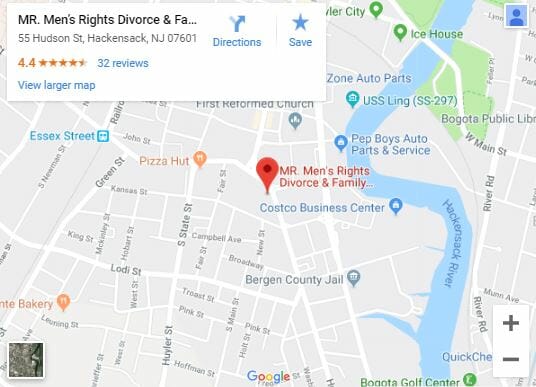
Fathers sometimes believe that they are not given the same consideration as mothers in child custody decisions. While the law technically does not favor one parent over the other, sometimes it may feel to men like mothers have more rights than fathers.
Traditionally, mothers in the past had an edge because they were stay-at-home caretakers, while fathers were wage earners. Hence, the mother would spend more time caring for children. That is no longer the case in the 21st century as more women work full-time and more men take on child-rearing responsibilities. More and more we hear about high-powered professional men leaving their careers to be stay-at-home dads. Our divorce lawyers are not suggesting you do that, for a lot of reasons, and you should definitely not do that thinking you will “win” a custody battle. We are merely making the point that the family dynamic has changed. Even so, today’s fathers are still sometimes the victims of the stereotype of the past.
CUSTODY DECISIONS BASED ON BEST INTERESTS OF CHILD
New Jersey’s child custody statute is gender-neutral. There’s no presumption that a mother or father is entitled to, or barred from, custody. It is presumed that a child is better off when both parents are involved in their life in some capacity. New Jersey law NJSA 9:2-4 makes clear that both parents have a right to custody unless evidence proves it’s not in the child’s best interests. In such complex cases, consulting a child custody lawyer can provide guidance and representation to ensure the best outcome for the child.
There are different types of custody, and the court will decide an arrangement based on what’s in the child’s best interests after considering a long list of factors. A judge will focus on what’s good for your child, not on what you want — or what the mother wants, either. The best approach is to make the case that what you want is in your child’s best interests.
MAKING A CUSTODY CASE
Your case for your father’s rights in custody battles must stress how you positively impact your child’s life. If you haven’t invested time or energy into parenting, starting to do so when legal action arises may be too late. When it comes to proving how capable and caring you are, actions speak louder than words. To potentially get the outcome you want, you’ll need to show you’re a capable, active parent who loves and cares for your child, and provide examples of past situations and decisions that make your point. The steps described in the following sections may help you get the custody arrangement you seek as a father.
NEGOTIATE IN GOOD FAITH
Most custody disputes are resolved through negotiations with the parties and their attorneys, and sometimes with the help of mediation. A mediator is a neutral third party whose role is to help parents try to reach agreement. If custody is litigated in court, you lose control of the outcome. This is a big risk to take in custody disputes.
BE FLEXIBLE WITH THE OTHER PARENT
Allowing the mother more time with your child may not seem like a good way for you to get custody, but New Jersey family law stresses cooperation between two parents. Unless there are legitimate safety issues, refusing to allow your child to have time with their mother is a good way not to look good in the eyes of a court. Two factors, among others, that the court considers in deciding custody, as stated in NJSA 9:2-4(c), are “the parents’ ability to agree, communicate and cooperate in matters relating to the child, and the parents’ willingness to accept custody and any history of unwillingness to allow parenting time not based on substantiated abuse….” This concept applies both ways so if you are being cooperative but she is not, then that is something your attorney can highlight in the litigation.
STRESS YOUR EARNING POWER
It can be an advantage to earn a higher income than the mother. Because of your earnings, you may be able to show the judge that you’re better able to provide for your child concerning three other factors in the statute: “the needs of the child; the stability of the home environment offered; the quality and continuity of the child’s education….” However, just earning more money, in and of itself, does not entitle you to custody. A lot of times parents put too much emphasis on this and think that money can buy them custody. That is false and money and the impact of money is just one criteria of several to discuss what is in the best interest of the children.
HAVE GOOD REFERENCES
A judge may find your claims more credible if others substantiate them. Affidavits from friends and family members stating why they think you’re a great parent may help. If you’re involved in a church or do volunteer work for a nonprofit, statements from others familiar with you could be a benefit. However, this never really is used unless your case is going to trial, which less than 1% of all cases do.
So, you shouldn’t put all your eggs in this basket. What is more important and weighted more heavily by the court is seeing you be consistently engaged in your children’s activities and day-to-day responsibilities. Do you help prepare meals, put them to bed, read bedtime stories, take them to the doctor, etc.?
TYPES OF CHILD CUSTODY IN NEW JERSEY
There are different types of child custody in New Jersey. They can be split and shared in various combinations:
- Legal custody: You’re able to share and make major decisions about your child, such as medical care and education. You do not need to live with your child to have shared legal custody of your child.
- Physical or residential custody: This covers how much time a child lives with a parent and the parent’s ability to make practical, daily decisions about their life. If you have primary physical or primary residential custody, you’ll live with your child more than the other parent. The other parent would be considered the parent of alternate residence.
- Shared (or joint) or sole legal or residential custody: These custody rights can be split by the parents, or only one may have them. Typically, legal custody is split. Residential custody may go primarily to one parent during the school year, with the other parent living with the child the rest of the year, and is purely a function of how the time-sharing (visitation) schedule plays out. Don’t get too caught up in the designations of primary parent or alternate parent. In practicality, your child will have the benefit of both of you as they grow up.
Your right to a particular custody arrangement will, again, depend upon what is determined to be in your child’s best interests. Our father’s custody rights attorney can advise you as you seek your desired custody situation.
WHAT PERCENTAGE OF FATHERS GET FULL CUSTODY?
There isn’t a solid answer to the question of what percentage of fathers get full custody. A nationwide study by Custody XChange, a company that develops parenting-time scheduling software, attempted to show the differences in parenting time given to fathers in different states. It concluded that in New Jersey, fathers and mothers most often shared custody equally. But the study didn’t state how many cases were included or the percentage of cases reviewed that shared 50/50 parenting time. The study looked at parenting-time decisions in Bergen County and nine other counties in the state. It added this qualifier to the study: “The percentages in the study reflect cases in which both parents want custody and no complicating circumstances exist ― such as criminal convictions or long-distance separation.” Nationwide, on average, it showed that fathers are likely to get about 35% of parenting time.
A U.S. Census report said that 17.5% of custodial parents were fathers.
However, both the study and report are several years old and may not accurately reflect current percentages.
CAN A PARENT LOSE CUSTODY RIGHTS?
A parent may not be given any custody, not even shared. He or she may not want to be involved in a child’s life. They may be unable to properly care for the child or make appropriate decisions about his or her upbringing. This can happen for all sorts of reasons. However, a parent without any legal custody rights still usually has a right to spend time with the child in a visitation arrangement; depending on the circumstances, that arrangement may be under a supervised visitation schedule in order to protect the children.
There is a steep hill to climb if either of you intends to argue that one of you has more rights over your child than the other, unless the facts establish that one of you is having severe problems. The law states, in part, “A parent shall not be deemed unfit unless the parent’s conduct has a substantial adverse effect on the child.”
CONTACT A SKILLED NEW JERSEY FATHER’S CUSTODY RIGHTS ATTORNEY
WE ARE STRONG ADVOCATES FOR THE RIGHTS OF FATHERS IN CUSTODY DECISIONS
When your future with your child is at stake, get the powerful legal help you need from father’s custody rights attorneys you can trust. Our experience will guide you in protecting your rights. We know the ways a judge will view your ability to parent your children. We’ll be sure to feature those abilities in our negotiations for custody and in how we draft your custody agreement.
Call the Bergen County firm of [MFR] Men’s & Fathers’ Rights Divorce Lawyers for a case evaluation. We can be reached at (201) 880-9770.

